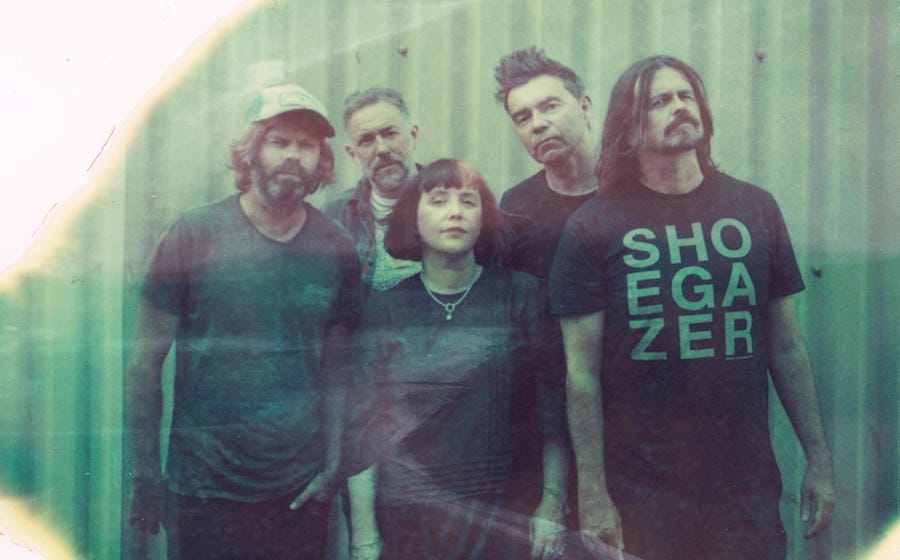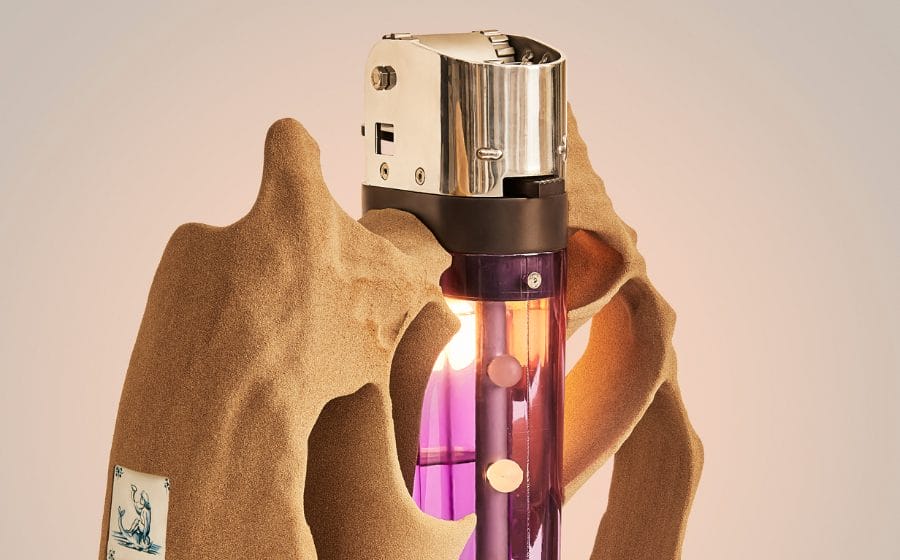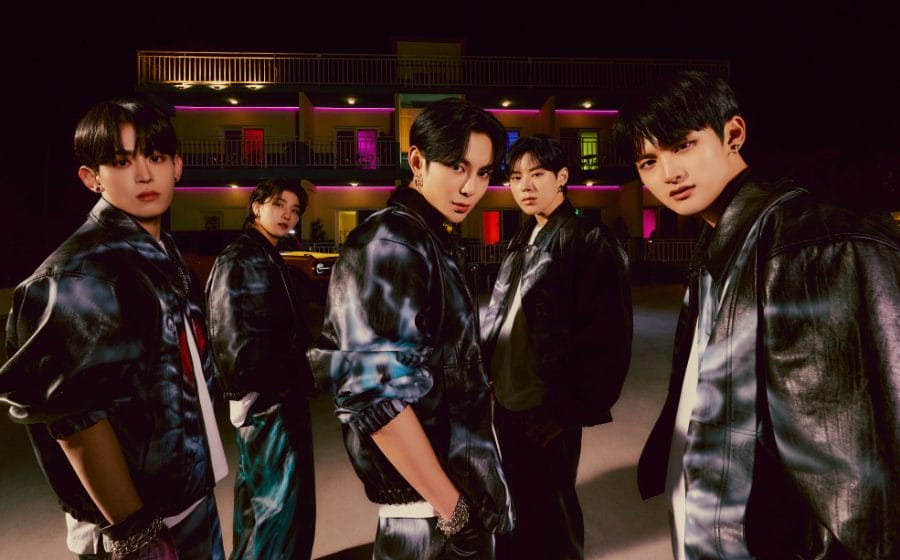Naufal Abshar is an Indonesian artist who creates vibrant narrative paintings in response to challenging socio-political conditions that he observes at home in Indonesia. Using larger-than-life characters and vivid colours, he makes commentaries about what is awry in society with pictorial representations of laughter and a healthy dose of humour.
Represented by Singapore-based Art Porters, Naufal’s work has been shown most recently at this year’s edition of Art Stage Singapore and the inaugural Art Stage Jakarta in August. In addition, he has a solo exhibition at Art Porter’s new space in the pipeline for the coming year.
We speak with Naufal about his works, his influences as well as his latest projects.
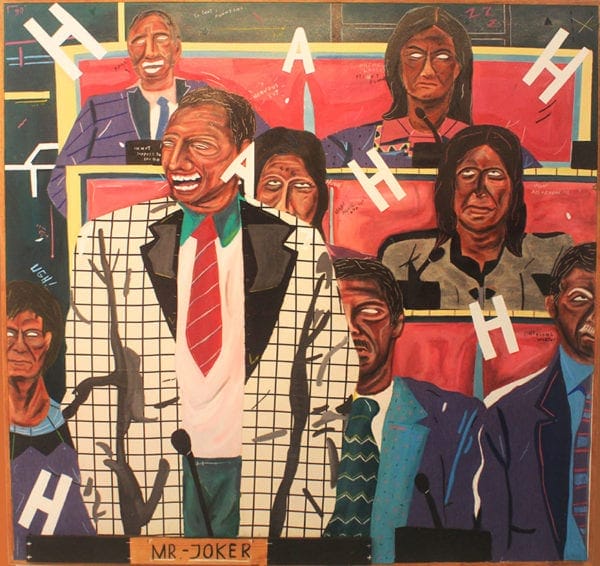
How did you decide to become an artist?
When I was younger, I liked to draw everywhere, all the time and on every medium. I preferred to draw than to study and decided to major in art at college, which initially shocked my parents. However, they quickly became supportive, and even introduced me to Indonesian artists such as Sunaryo, Arin Dwihartanto and Nyoman Masriadi, whom I continue to look up to in my quest to become a successful professional artist.
How have you come up with concepts for your artworks?
To begin with, I observe my surroundings, and I see that life is very hard and stressful. Everyday, we need to think about money, bills, life and security. I live in Jakarta, a city with many daily obstacles that range from the seemingly trivial, such as traffic congestions, to larger social-political issues. If we face these conditions with wrath, we will become stressed out, so I choose to portray them with humour and laughter.
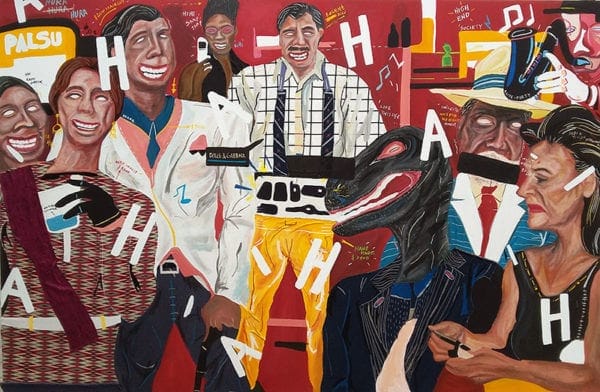
What role does humour play in your art?
Humour is very complex; it can be a cure for our stress or a weapon to criticize something. It has an interesting relationship with laughter: humour produces laughter but not all laughter comes from humour. Sometimes we laugh because we reject something, or laugh at someone out of mockery, or we are being sarcastic. I try to depict at the presence of laughter and apply it as a form of criticism. Some criticisms are expressed through jokes, which we enjoy and laugh about because we actually agree with them.
Are your artworks always about the state of politics and the society in Indonesia? How does the small text that you add to your paintings help to convey your ideas about these?
At first when I started this series, I focused on the Indonesian socio-politics but now as I have travelled more, my work increasingly speaks about the global context. The small text is akin to the small things in our lives. We have the big picture, or an ideal that we work towards, but in daily life we have small things that construct that big picture, so the small text contributes towards the overarching narrative in my work.
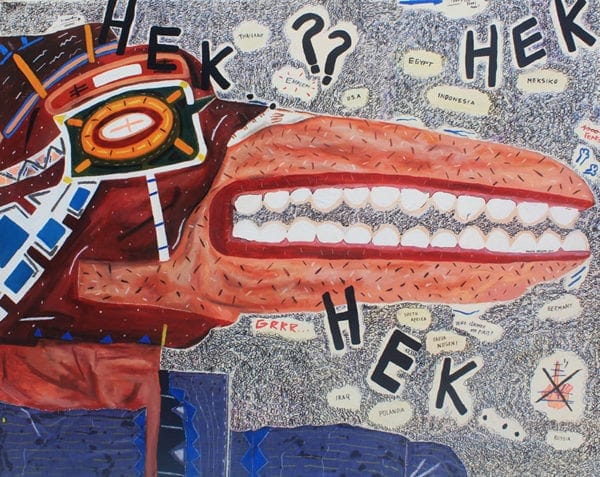
Can you tell us more about the works that were shown at Art Stage Jakarta in August?
I’m still working on the ‘HAHA’ series but this time I’m talking about living the high life. I’ve used animal heads to comment on how human beings possess a number of traits that are similar to those of animals and at the same time, we also have an intelligence that they do not possess.
Which artists do you look upon as major influences in your work? What do you like about their works?
I like David Hockney’s use of bold colours, and the composition of his works. Jean-Michel Basquiat has been a long-time influence for his brutally honest artworks as well as his colour compositions. From Indonesia, I admire Heri Dono’s humorous artworks, which are simultaneously political and critical. Nyoman Masriadi’s beautifully executed paintings, especially the truths that are revealed in seemingly playful contexts, are very inspiring to me as well.
What do you have planned for the upcoming solo show at Art Porters in their new space in the next year?
It’s a very exciting prospect! For now I haven’t planned that much, because I want to focus on one project at a time so my ideas will not be scattered. But at some point, I hope to realise an installation or even maybe something more experimental such as a video work. It would be interesting to work in other mediums aside from painting and sculpture.

